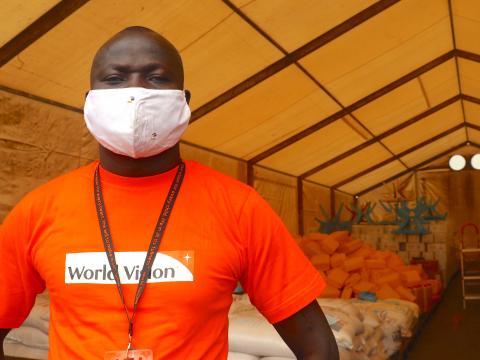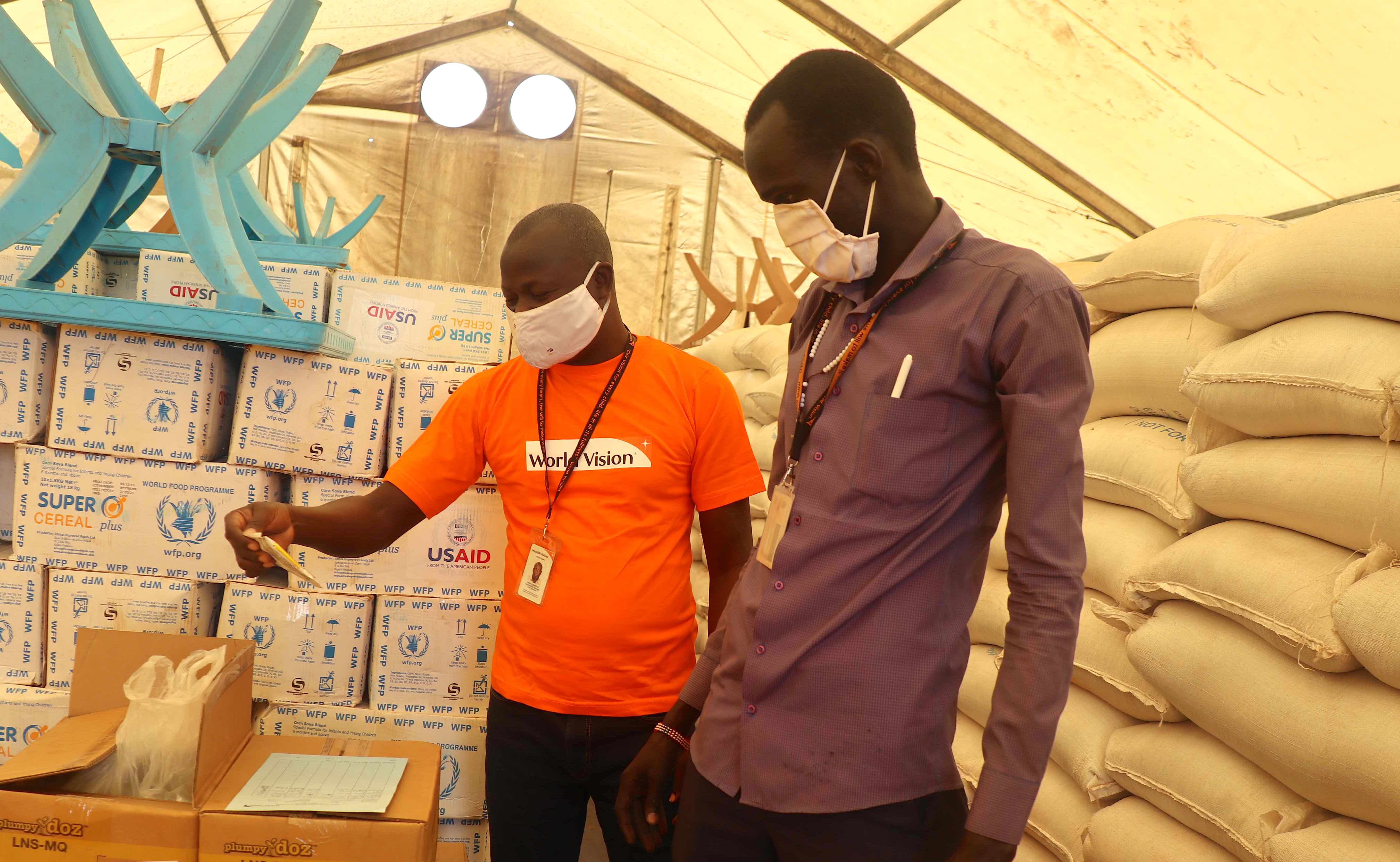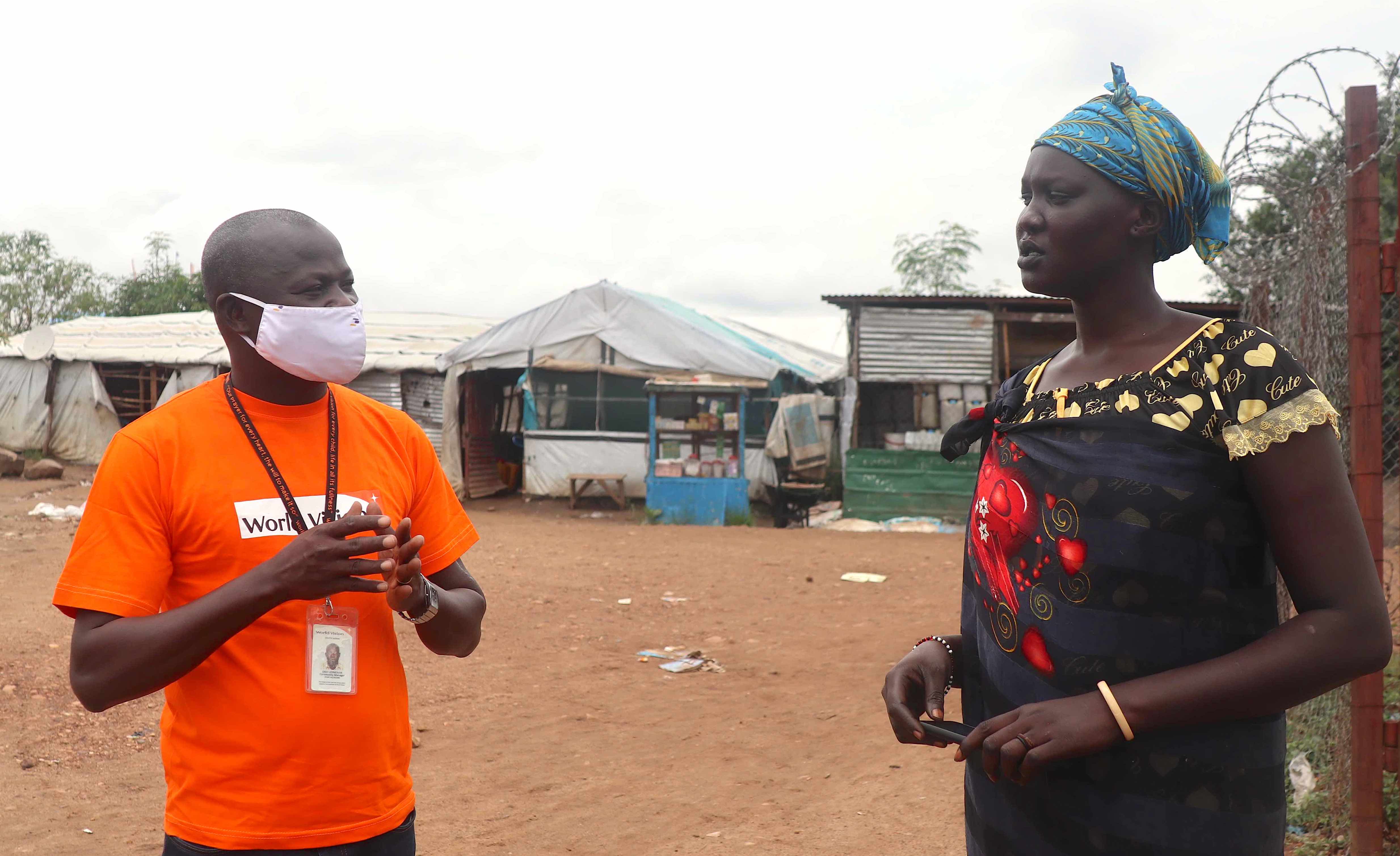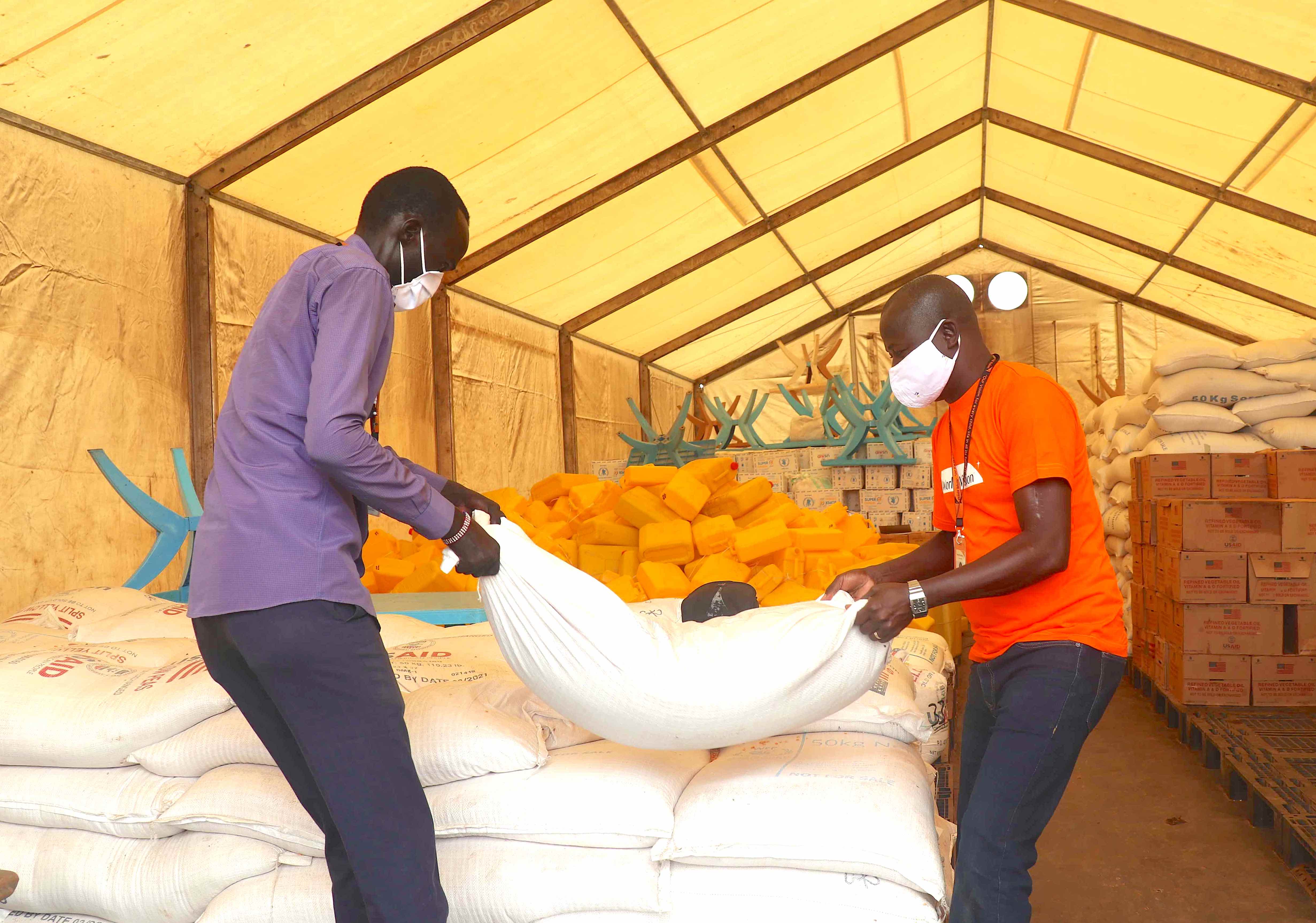From Cote D’Ivoire to South Sudan: Ekra delivers food assistance through conflict and coronavirus pandemic

The COVID-19 pandemic has indeed changed the way we work in the food assistance sector of the humanitarian world. New processes need to be observed to keep the communities aware of the risks and what they need to do to be safe and protected.
It is not easy changing the way the people behave during food distributions, even in convincing them to make adjustments in their way of life. The preventive measures such as social distancing, regular hand washing, sneezing into the flexed elbows, and avoiding handshaking have to be enforced in all of World Vision’s activities.
While this is difficult and painstaking to do considering the traditions and cultures, the food assistance team needs to help the people adapt to the changes so we are able to help prevent the risks and do the food distributions safely.
We restructured our approach by reducing the number of people coming for every distribution to receive their food ration for stress-free crowd control. To ensure social distancing, we mark the waiting points with ashes where people can stand and wait to receive their monthly ration after they have washed their hands properly in designated washing areas.
Related read: Sarah's story as a social worker

This considerably slowed down the process and people need to be patient for their turn. This is a tight balance between conforming to the necessary guidelines by health authorities to prevent the spread of the coronavirus and at the same time ensure the timely delivery of humanitarian assistance.
I am married to Amoa Theresa since 2003 and now a father of four children, three boys and a girl. As a father myself, I know how crucial is school feeding and the nutrition program in the lives of children in South Sudan and all over the world. I believe God granted me this zeal to serve people in the most vulnerable communities.
I grew up in Cote D’Ivoire with my five siblings, where I attended primary and secondary school, later moving to Abidjan, the country’s capital, to complete my accounting degree at the Ecole de Technologie – Loko (Technology College).
The diversity of the people’s cultures in different countries have helped shaped my perspective in the humanitarian work.
I first joined World Vision’s Food Assistance Programme in Zimbabwe as a Commodity Officer in 2003. After a year, I had an opportunity to be part of the Food Aid Management School (FAMS) managed by the Food Programming and Management Group (FPMG), which is now named the Disaster Management Team (DMT) organized by the World Vision Zimbabwe-Relief Program between July 2004 to May 2005.
Upon completion of the course that took nine months, I worked in World Vision’s various food and ash assistance programmes in East and West Africa, Asia (Sri Lanka Tsunami Response) and in the Haiti Earthquake Response in Latin America.
Related read: South Sudan's women humanitarians

Currently, I am World Vision’s Food Assistance Projects Manager in South Sudan providing an oversight on Food for Assets (FFA), general food distribution, nutrition, the school feeding activities and warehouse management supported by the World Food Programme (WFP) with combined full time and temporary staff of 160 people.
Over the last 17 years, I gained a wealth of experience in food and cash programming working with people and participating in many learning opportunities. The diversity of the people’s cultures in different countries have helped shaped my perspective in the humanitarian work.
These kind of programs are generally implemented in hard-to-reach, even dangerous, areas, my desire to serve and reach-out to people are always rejuvenated by the fact that we do our best to deliver the assistance despite the odds.
Watch video: South Sudanese mothers battle the pandemic with livelihood and resilience

Blog by Ekra Komenan, Food Assistance Projects Manager based in Warrap State, South Sudan I Photos by Scovia Faida Charles Duku, Communications Coordinator